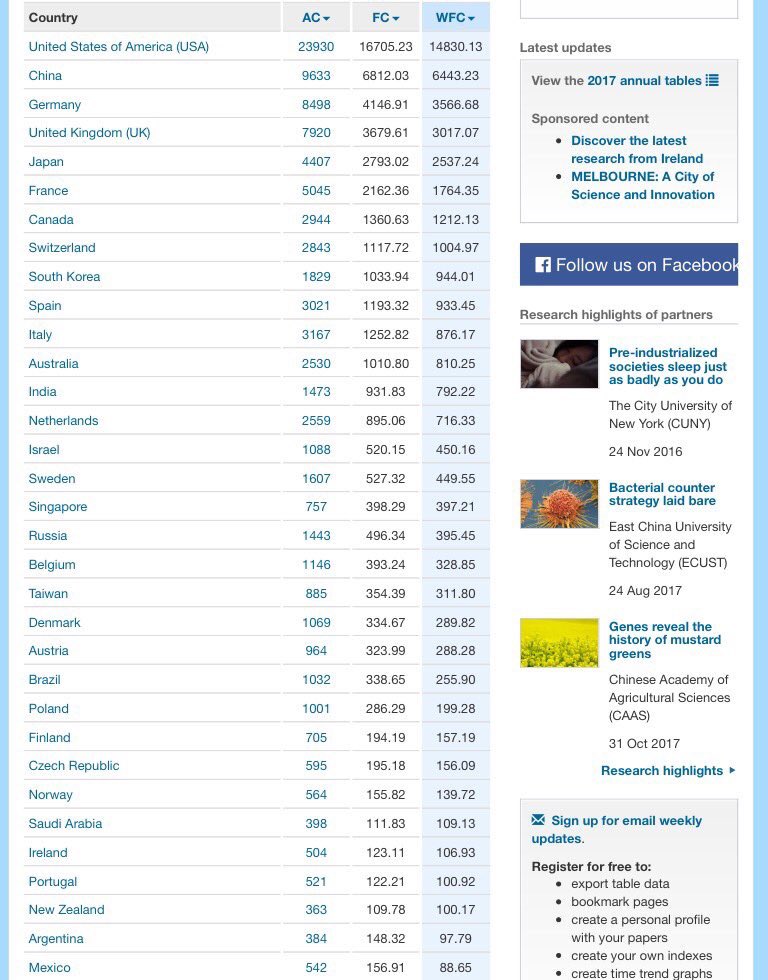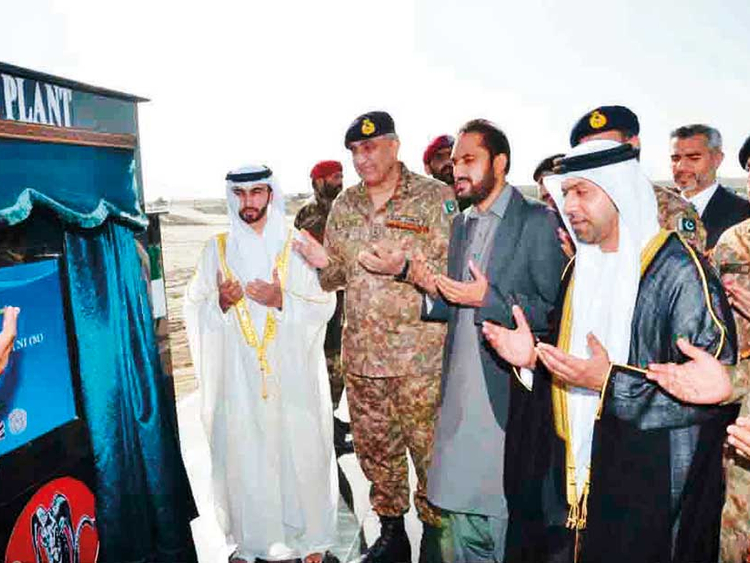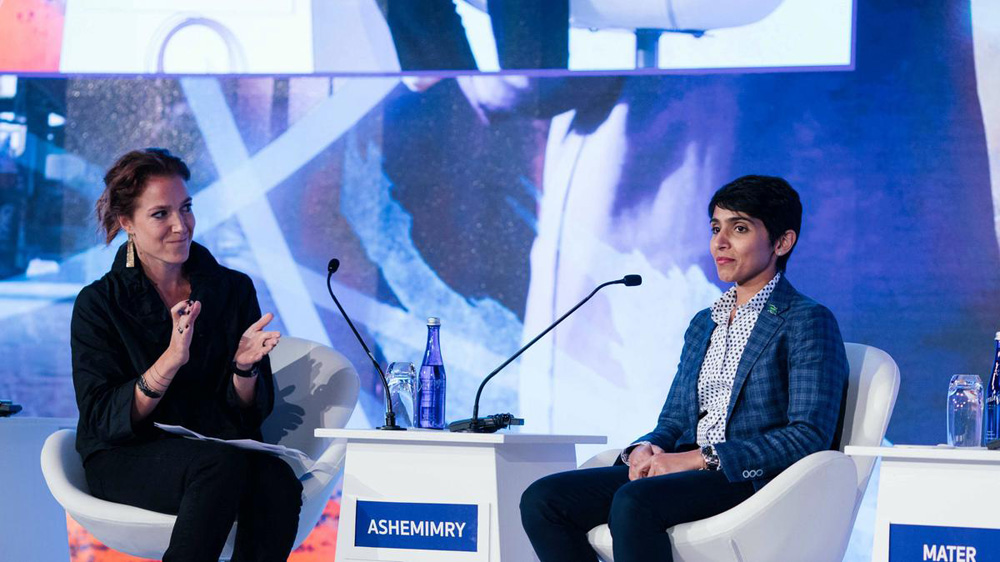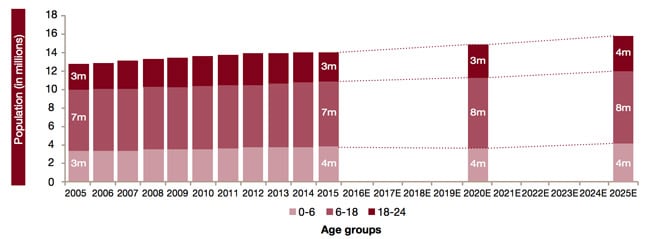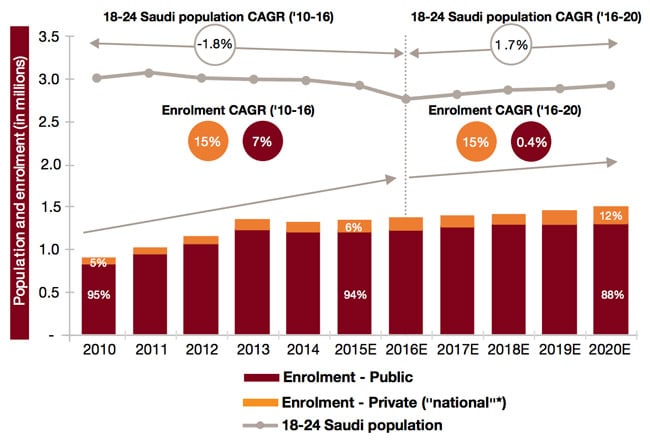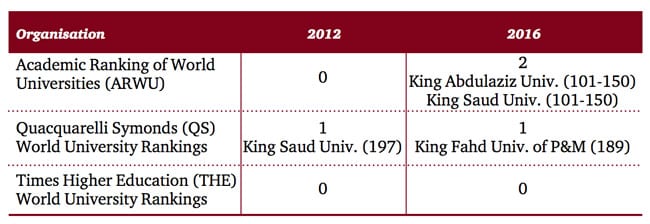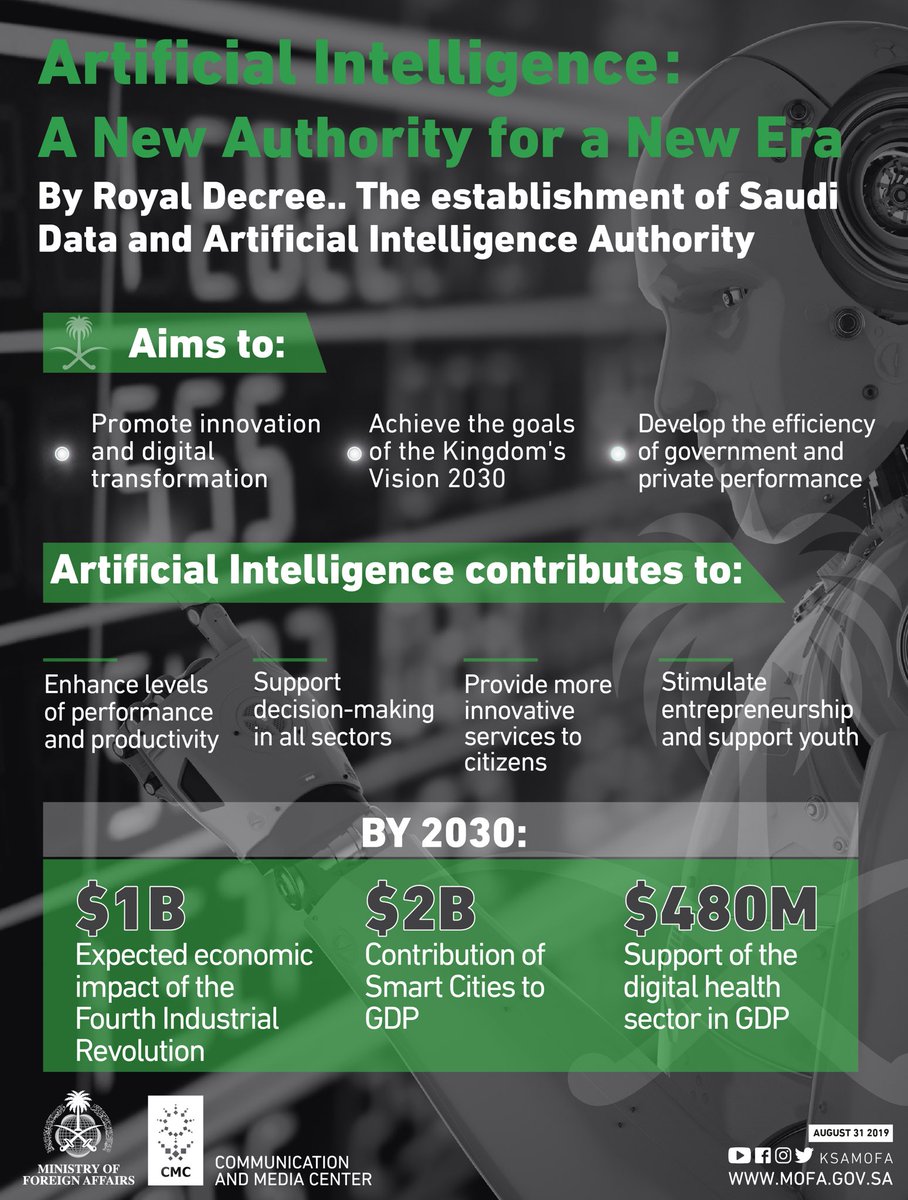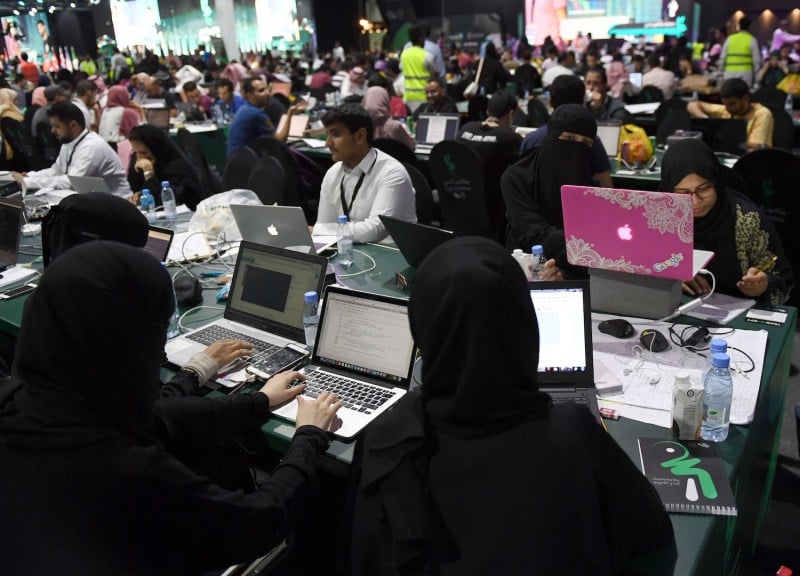ARGUMENT
China Could Be the Big Winner of Saudi Arabia’s Race to Become a Tech Hub
Beijing is a natural partner to fast and cheap development, but Riyadh should be wary of alienating its allies.
BY
ROBERT MOGIELNICKI | OCTOBER 8, 2019, 6:13 PM
Over the summer, with little notice, Saudi Arabia issued a royal decree mandating the establishment of the Authority for Data and Artificial Intelligence. The decree also ordered the creation of the National Center for Artificial Intelligence and the National Data Management Office. Saudi officials were given a mere 90 days (until the end of November) to make the necessary preparations. Although such modernization efforts are a worthy goal, ambitious technology initiatives in Saudi Arabia may greatly benefit China, which has just been presented with a massive opportunity to expand its influence across the region.
In contrast to its Gulf Arab neighbors, namely the United Arab Emirates and Bahrain, which have poured substantial political capital into developing local artificial intelligence (AI) and financial technology industries, Saudi Arabia’s own digital transformation lags behind. In part, that is because the feat is more challenging in Saudi Arabia, which contains more residents than the combined populations of all of its fellow Gulf Cooperation Council states and is the largest country by area in the Middle East. Beyond that, it may be slower to move because digital transformation can disrupt long-standing institutions and norms associated with data access and availability, data sovereignty, and labor markets.
Yet Saudi Arabia’s cautious pace is increasingly at odds with Riyadh’s futuristic economic diversification plans. In the $500 billion planned megacity Neom, for example, “everything will have a link with artificial intelligence, with the internet of things—everything,” Crown Prince Mohammed bin Salman told Bloomberg in 2017. That’s an impossible feat as long as the funding sources and international demand for such development initiatives remain unclear.
And that’s why Saudi Arabia is beginning to accelerate its digital agenda to test the markets. Zain, a regional telecommunications firm, deployed 5G commercial operations across some 20 Saudi cities in early October, following a rollout of similar services in Kuwait. The continued development of the country’s digital economy is also part of a National Transformation Program strategy to enable private sector growth. However, the program sets a low bar: The digital economy’s share of non-oil GDP is expected to rise from 2 percent in 2016 to just 3 percent in 2020.
Also complicating things for the Saudi government is that many tech start-ups in the Middle East and North Africa have targeted the vast Saudi market while also declining to open headquarters there, opting instead for neighboring Gulf countries.
Also complicating things for the Saudi government is that many tech start-ups in the Middle East and North Africa have targeted the vast Saudi market while also declining to open headquarters there, opting instead for neighboring Gulf countries.That makes it all the harder for Saudi Arabia to build a domestic technology hub and compete for regional spending on tech. Spending on AI alone in the Middle East and Africa is estimated to rise 42.5 percent in 2019, according to the International Data Corporation.
The UAE—particularly the emirate of Dubai—identified AI as a central component of the country’s tech-driven economic strategy as early as October 2017, when the government launched its Strategy for Artificial Intelligence and appointed a dedicated minister of artificial intelligence. The Emirati government aims to position the country as a global incubator for commercial projects and ventures that implement AI-focused applications and services.
Fast-growing segments of the financial tech sector, such as the cryptocurrency industry, are another arena of competition between Saudi Arabia and its Gulf Arab neighbors. Abu Dhabi Global Market, a financial free zone governed by independent authorities, and the Central Bank of Bahrain oversee several cryptocurrency exchanges, brokerages, and start-ups. Indeed, the UAE and Bahrain possess the region’s most progressive regulatory frameworks for cryptocurrencies and other cryptoassets.
In early 2019, the Saudi Arabian Monetary Authority and the Central Bank of the UAE launched Aber, a common digital currency project to facilitate financial settlements between the two countries. However, there has been little progress on this front. The Saudi Finance Ministry remains weary of cryptocurrencies and has issued warnings concerning fraudulent cryptocurrency scams linked to national development projects such as Neom.
As Saudi efforts pick up speed, China will surely want to act as a partner.
As Saudi efforts pick up speed, China will surely want to act as a partner. Chinese officials and businesspeople consider the Middle East an integral commercial link to European and African markets. And the country’s the Digital Silk Road, a subset of the Belt and Road Initiative, further serves to develop digital infrastructure internationally and position China as a global technological superpower. Saudi Arabia—along with six other countries—agreed to a China-led Digital Economy International Cooperation Initiative in late 2017, and senior Chinese government officials continue to call for greater high-tech cooperation between the two countries. But managing greater Chinese involvement in the country’s technology spheres will require a delicate balancing act.
On the one hand, Chinese firms can implement digital infrastructure projects and AI applications cheaply and on short deadlines, which will help Saudi Arabia adhere to its budget in a period of relatively low and volatile oil prices. Meanwhile, Chinese academic institutions, private firms, and government entities are well positioned to support Saudi Arabia’s emerging tech spheres. Universities and research organizations in China play a dominating role in producing inventions and patents for distributed AI, deep learning, and neurorobotics. And the Chinese multinational technology firm Huawei not only possesses a clear AI strategy, which involves investments in AI research and developing a global AI ecosystem and talent pipeline, but also manages 5G mobile infrastructure projects across the Gulf region. Moreover, China’s central bank is in the process of launching a digital currency, which it plans to distribute to the country’s largest banks and financial tech companies.
On the other hand, Chinese engagement in Saudi Arabia’s data and tech spheres will worry the U.S. government and other allies, given the strong linkages between data, AI, and security interests.
https://foreignpolicy.com/2019/10/08/saudi-arabia-racing-high-tech-hub-china-is-ready-to-join-in/

